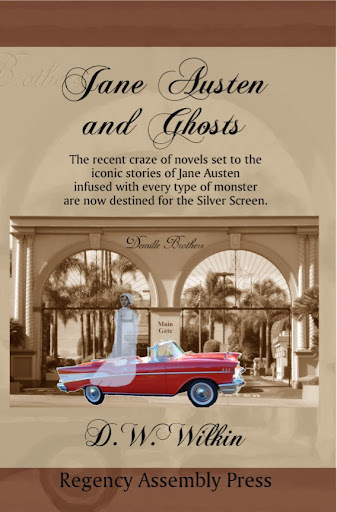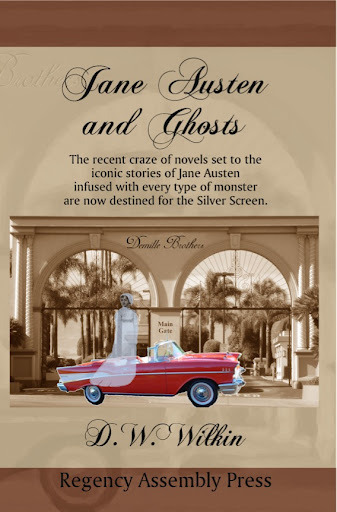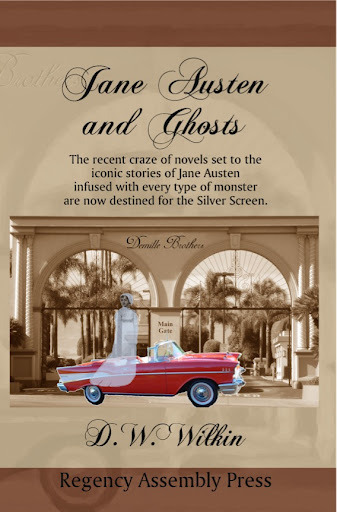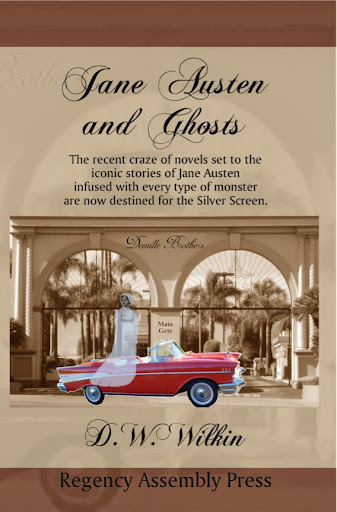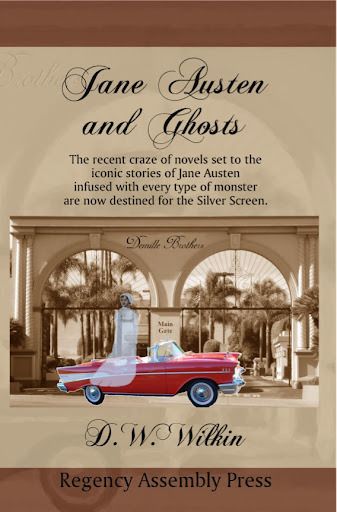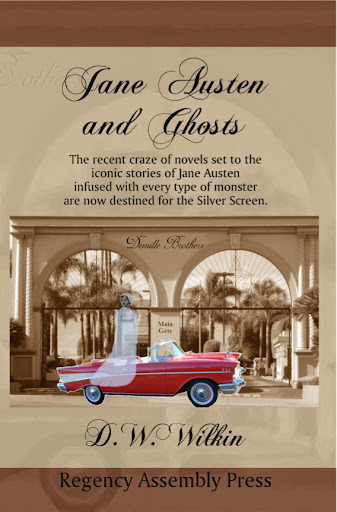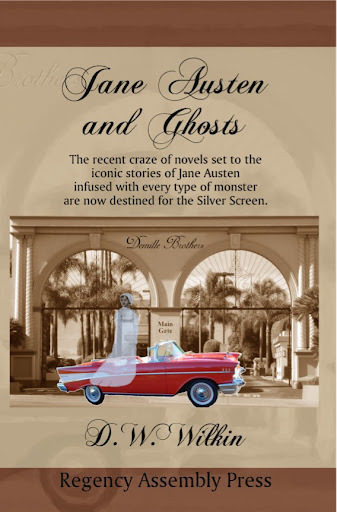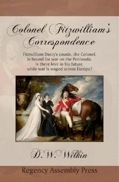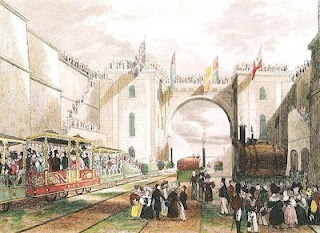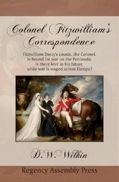D.W. Wilkin's Blog, page 354
March 17, 2012
Bedford Square in the Regency
History
The location of the lord or ladies home in London is always something I spend time over. And each time I then research the square I use or re-research it. Bedford Square is one such location that our Heroes or Heroines would readily find themselves abiding at.
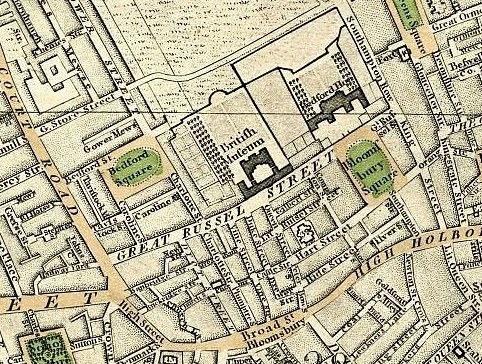
The history of the square during our era follows the 5th Duke of Bedford who liked the West End better and his brother the sixth Duke, John Russell, whose son was later to be a Prime Minister.
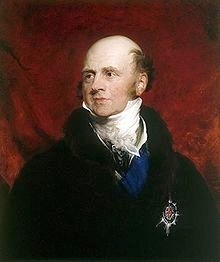
(The sixth Duke, John Russell)

(5th Duke, Francis Russell)
Francis did not like the Bloomsbury area where the family's London house was and had an auction of all the goods in 1800. Thereafter the house was demolished and the entire areas was placed under development. The focus was to be Russell Square, but just a block away was Bedford Square which had been developed between 1775 and 1783. The entire area of Bloomsbury was more fully developed under the auspices of the sixth Duke from 1802.
Now the square is mostly offices, but during our period some notables lived there. One such was Elizabeth Jesser Reid at #48 (1789-1866.) Her marriage for about one year to Dr. Reid left her a fortune which she later started Bedford college at the square. The first women-only higher education institute in London.
Another was John Scott, the 1st Earl of Eldon and Lord Chancellor from 1801 to 1806 and 1807 to 1827 at #6
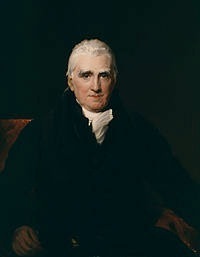
The discoverer of Hydrogen, Henry Cavendish lived at #11
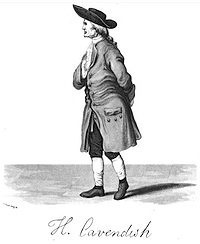
Thomas Hodgkin, identified with the cancerous Hodgkins disease (something I have a great familiarity with) was a resident at #35, as was Thomas Wakley who started the Lancet.
Jane Austen and Ghosts
The Kindle version has been out for two weeks. It is also available now at Barnes and Noble for your Nook, or at Smashwords. The iTunes edition is also available as is the trade paperwork version so Jane Austen and Ghosts is now physically in print.
You can purchase your copy today at Amazon for $4.99. Or you can purchase at Smashwords, or at Barnes and Noble.
With the availability on the iBookstore for your iPad, and in Trade Paperback, Jane Austen and Ghosts is available at all the outlets that Regency Assembly Press publishes to. The Trade Paperback is now available for $8.99 US and of course available in other currencies for other countries based on that US price. Digital versions across all platforms are $4.99.
Click here to be taken to the webpage on Amazon
A brief synopsis of the story:
In the world of moviemaking, nothing is as golden as rebooting a classic tale that has made fortunes every time before when it has been adapted for the silver screen. Certainly any work by Jane Austen made into a movie will not only be bankable, but also considered a work of art.
That is of course until the current wave of adaptations that unite her classic stories with all the elements of the afterlife is attempted to be created. That these have found success in the marketplace amongst book lovers may not be quite understood by those who make movies. But that they are a success is understood and a reason to make them into movies.
All that being said, perhaps it would also be fair to say that the very proper Jane, were she present to have anything to say about it, would not be pleased. Of course she has been away from this Earth for nearly 200 hundred years. But does that mean were she upset enough, she wouldn't come back?
Ellis Abbot found stories for tinseltown to make into movies. His most recent find were the batch of stories set in the regency world of Jane Austen. Jane Austen and Monsters.
Meeting with the various authors of those works, it did not seem that Ellis could get one coherent plot of script out of any of them. At least not until he got help from the best source of all.








March 10, 2012
Belgrave Square in the Regency
History
The location of the lord or ladies home in London is always something I spend time over. And each time I then research the square I use or re-research it. Belgrave Square is one that we should not make the mistake of using for the residences of our heroes for it is at the later part of the Regency era that building began and it began to be inhabited.
Previously the area known now as Belgravia was called Five Fields and one of the worst areas in London. Home to thieves and highwaymen and murderers, one supposes that should we be writing a piece with such a rake or ruffian as our hero then this would be quite the appropriate setting.
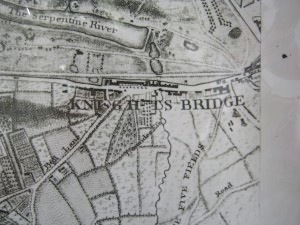
In the early 1800s Thomas Cubitt began to drain the area for Robert Grosvenor the 2nd Earl Grosvenor and later 1st Marquess of Westminster (1831) 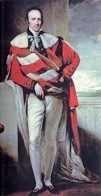 A line that later becomes the Dukes of Westminster (The grandson of the lord who developed the Belgrave Square.)The square and section of town get their name from the village of Belgrave in Cheshire which is two miles from the main country seat, Eaton Hall, of the Grosvenors.
A line that later becomes the Dukes of Westminster (The grandson of the lord who developed the Belgrave Square.)The square and section of town get their name from the village of Belgrave in Cheshire which is two miles from the main country seat, Eaton Hall, of the Grosvenors.
The development of the estate in London was to make the Grosvenors one of the richest families in Britain. Most of the houses of the square were occupied by the 1840s. George Basevi designed a series of terraces each made up of eleven grand houses, all white, except the south east terrace with twelve houses. There were also three detached mansions around the central private garden. The Marquess is remembered with a statue in the garden along with several other notables.
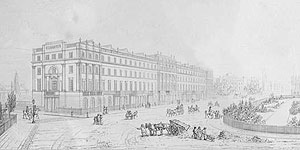
Amongst the notables and those who made the square an important location to inhabit was the Duke of Bedford who took up residence at number 6, moving from his homes in Bloomsbury which had lost its cachet. Later in the century many embassies would also take up residence in the square, including the German embassy at #21-23.
Jane Austen and Ghosts
The Kindle version has been out for two weeks. It is also available now at Barnes and Noble for your Nook, or at Smashwords. The iTunes edition is also available as is the trade paperwork version so Jane Austen and Ghosts is now physically in print.
You can purchase your copy today at Amazon for $4.99. Or you can purchase at Smashwords, or at Barnes and Noble.
With the availability on the iBookstore for your iPad, and in Trade Paperback, Jane Austen and Ghosts is available at all the outlets that Regency Assembly Press publishes to. The Trade Paperback is now available for $8.99 US and of course available in other currencies for other countries based on that US price. Digital versions across all platforms are $4.99.
Click here to be taken to the webpage on Amazon
A brief synopsis of the story:
In the world of moviemaking, nothing is as golden as rebooting a classic tale that has made fortunes every time before when it has been adapted for the silver screen. Certainly any work by Jane Austen made into a movie will not only be bankable, but also considered a work of art.
That is of course until the current wave of adaptations that unite her classic stories with all the elements of the afterlife is attempted to be created. That these have found success in the marketplace amongst book lovers may not be quite understood by those who make movies. But that they are a success is understood and a reason to make them into movies.
All that being said, perhaps it would also be fair to say that the very proper Jane, were she present to have anything to say about it, would not be pleased. Of course she has been away from this Earth for nearly 200 hundred years. But does that mean were she upset enough, she wouldn't come back?
Ellis Abbot found stories for tinseltown to make into movies. His most recent find were the batch of stories set in the regency world of Jane Austen. Jane Austen and Monsters.
Meeting with the various authors of those works, it did not seem that Ellis could get one coherent plot of script out of any of them. At least not until he got help from the best source of all.








March 3, 2012
Jane Austen and Ghosts sample chapter
Jane Austen and Ghosts
The Kindle version has been out for two weeks. It is also available now at Barnes and Noble for your Nook, or at Smashwords. The iTunes edition is also available as is the trade paperwork version so Jane Austen and Ghosts is now physically in print.
You can purchase your copy today at Amazon for $4.99. Or you can purchase at Smashwords, or at Barnes and Noble.
With the availability on the iBookstore for your iPad, and in Trade Paperback, Jane Austen and Ghosts is available at all the outlets that Regency Assembly Press publishes to. The Trade Paperback is now available for $8.99 US and of course available in other currencies for other countries based on that US price. Digital versions across all platforms are $4.99.
Click here to be taken to the webpage on Amazon
A brief synopsis of the story:
In the world of moviemaking, nothing is as golden as rebooting a classic tale that has made fortunes every time before when it has been adapted for the silver screen. Certainly any work by Jane Austen made into a movie will not only be bankable, but also considered a work of art.
That is of course until the current wave of adaptations that unite her classic stories with all the elements of the afterlife is attempted to be created. That these have found success in the marketplace amongst book lovers may not be quite understood by those who make movies. But that they are a success is understood and a reason to make them into movies.
All that being said, perhaps it would also be fair to say that the very proper Jane, were she present to have anything to say about it, would not be pleased. Of course she has been away from this Earth for nearly 200 hundred years. But does that mean were she upset enough, she wouldn't come back?
Ellis Abbot found stories for tinseltown to make into movies. His most recent find were the batch of stories set in the regency world of Jane Austen. Jane Austen and Monsters.
Meeting with the various authors of those works, it did not seem that Ellis could get one coherent plot of script out of any of them. At least not until he got help from the best source of all.
The first chapter for your enjoyment:
Chapter 1-Monday
Ellis Abbot had few indulgences, since he could not really afford them. Not with his two daughters college funds and weddings for which to save. His father's convertible, which legend had it belonged to Clark Gable, and was left to him in the will, was one of those indulgences. It was however the classic '57 Chevy Bel Air, and it was still in operable condition. Nothing was better than when he had weekends or summer vacation with his daughters and they all went cruising in the California sunshine, with the top down.
The days he drove to the studio lot of historic Demille Brothers located three blocks below Sunset Blvd. in Hollywood, he made sure that he drove with the top down and the car gleaming with a new coat of wax. He wasn't trying to keep up appearances with the studio executives in their Mercedes, Bentleys and Lexus'. It was more his desire to look and feel good.
Ellis also knew that when in the Chevy, he stood out in the mind of Jake, the guard at the security booth who checked all those with drive-ons at the entry gate. A drive-on was someone who the security guards had been told was coming to the studio that day. Ellis only came to the studio lot and his production company meetings every other week normally. Jake, Ellis was sure, remembered the car more than he remembered Ellis. Jake had once told Ellis that he loved to stop the drive-ons so they could have that iconic moment before the gate with the scrolled metal lettering of Demille Brothers above their head. The Main Gate entrance of Demille Brothers that had been pictured in Hollywood history and lore for almost a century. Any virgin arrivals to the studio were now also becoming part of that mystique when they rolled onto the lot.
Jake had a phone bud in his ear, and used an iPad to check to see if someone was okayed to be on the lot. Ellis mused that the man probably missed the days when the phone and it's cord gave him a reason to duck back into the booth, stalling newbies under the sign. Jake quickly looked down at his iPad and scrolled, then said, "What? Here all week? That's a change."
Ellis replied, "Working on a story conference. One of my ideas is going to go into production."
Jake seemed to love the film industry. His smile looked genuine, "Well good for you. We want to see your Chevy more often on the lot. It brings back fond memories."
"Thank's Jake, but I've said before, it is only a legend about Clark Gable," Ellis said.
"You keep saying that Mr. Abbot, but I've seen a picture with Mr. Gable driving that very car." Jake waved and smiled. Ellis' father had said he had bought the car at an auction shortly after Gable had died and there was a provenance for it. However, when Ellis' father had passed away, Ellis could not find the paperwork.
Ellis went on through to the Benton Productions office building. Patrick Benton had been producing films for Demille Brothers for nearly forty years. Patrick often said to Ellis when they took long lunches that he would leave the whole company to Ellis one day. There were, however, still a few levels of producers between the two of them in the movie company. It did help, that of the blockbusters since Ellis had started at the company, he had more than any of the other story finders.
That was his job, technically. Find material that Benton Productions could turn into films. Jay, who had been with the team a year longer than he, had found two hits, and a lot of good films. Then there was Larry. Larry had one hit, but it was one of those high school hi-jinks flicks. The right cast, the right time, and the right obnoxious jokes and you were bound to make money. Money that Pat Benton, the head of their company, needed just at that moment. Unfortunately there had been a few productions in the last couple years that were artistic achievements but cost more than they brought in.
A few years back Ellis had walked into the Costa Mesa Borders bookstore in the mall, which was now closed and gone, and saw the most ridiculous cover on a book. Pride and Prejudice and some sort of monster. Lizzie Bennet all dressed up but with her flesh rotting away.
Usually the New York agents and publishing assistants would send out books that were on the production schedule up to a year ahead of their release. The manuscripts would be leaked in the hopes of securing a movie deal. This one he had not seen, but then the world of publishing was changing faster than anyone could follow. There were a host of small presses also trying to make a name for themselves and this book did not seem to fit the normal niche.
He picked the book up and walked to the coffee bar to get a latte. Sipping slowly, he eventually realized he was on his third cup, and more than halfway through the book. It had just been released that Tuesday, and a few phone calls was all it took to find the agent of the writer. The agent was very happy to talk about optioning. Though that was usually a job done at the production company that was two rungs up the ladder closer to Patrick Benton. Patrick had told him often that sometimes one had to use one's initiative and trust one's judgement.
Ellis had been around a long time and many of the works he had pushed had banked. It didn't take long for Ellis to negotiate an option quickly on that first book he had found. Then over the next few years Ellis had picked up every Jane Austen twist that was published. And even a few still waiting their turn to get on the bookstore shelves. Though some he had bought options on, he was not sure would ever make it.
Knowing that the company could use some money making hits to add to the string of artistic successes that did not often provide a profit was one reason Ellis and Benton Productions had optioned the work of these authors. Not to garner another nomination from the Academy, but to earn money and pay for keeping the lights on. Demille Brothers wasn't going to kick Benton Productions out of their offices, but Patrick Benton needed a money maker to pay all the salaries and other expenses.
Benton Productions was one of the few companies that Demille Brothers Studios gave office space to on their lot. Pulling up in front of the office building, a large two story affair designed to look like a bungalow one might find along the Pacific Coast highway, Ellis noticed that Larry had a space with his name on it. The space was five down from where Patrick's Rolls Royce Phantom was always parked. This week was Ellis' project and Larry was low man on the story finder ladder. Ellis parked the Chevy there in the spot with Larry's name. Larry could lump it.
Ellis walked into the offices and found the reception area empty of anyone. It was a large room, carrying the bungalow theme out with wooden planked walls. Unlike other production offices, there were no posters of movies on the walls. They were instead covered with actual paintings. They were Modern art. Artists that had caught the fancy of Patrick Benton or his wife, Jean.
The receptionist had not arrived yet, but then it was early for a Monday morning. Ellis could hear some sounds from elsewhere in the office. He was to spend the week in the conference room and headed that way.
Seeing a bald head with a fringe of white hair like an ancient roman senator, Ellis recognized Patrick from behind. The boss was talking to one of the few secretaries that was already working that morning.
"Ellis, do you have all you need?" Patrick said when he turned and saw Ellis.
"Yes, I do," Ellis replied.
Saying anything less would have Patrick worrying. Patrick was the Producer and had four Oscars in his office to show that he was good at what he did. Now, the way the production company had evolved, it was more shepherding what remained of the business for the next generation. Patrick was now intent on finding people to carry on when he was gone. He had told Ellis that repeatedly over the last year.
Hollywood though did not work that way. Benton Productions should go the way of the Dodo once Patrick retired. Another star producer would emerge and put a team together. Demille Brothers would give their office space to someone they hoped could hit home runs.
Patrick said, "Good, good. There is a new Exec Producer starting, well my sister's son actually, coming by to help us with the Reality Project film for Adam Standler later. Jamin Collins, my nephew. It was Benjamin but he went off to college and changed his name…" Patrick was wool gathering. It happened of late.
The Reality Project film was something Ellis' own cousin had given him the idea for, and it seemed quite poignant since the little screen was now almost all reality shows. The Reality Project film and the Austen Monster movie were the two films that Benton Productions were actively working on.
Patrick said, "Not that I like the premise of the Reality Project movie any more than I like what you are up to this week, but the Reality Project is going to be touching. Which of course Standler seems to like more and more these days. As long as we still leave room for several of his trademark comic sketches."
"When we pitched Standler," Ellis said, for he had been at that meeting, "we knew that was the hook that would get him." Ellis had thought the idea good when his cousin had outlined the story idea. It was going to put a few bucks in his cousin's hands since he had come up with the idea and the initial script.
Patrick smiled, "I loved it when you first told me. A movie all about a failing reality production company. One that once was the industry leader. Hell, this town is littered with companies like that."
"Well, we hope that this take on cooking is not too overdone," Ellis smiled at the pun as he said it.
Patrick laughed a little, "I think that coming up with another stupid idea that the audience loves is key. Putting the production company in the film back on track to making money and paying off their debts from when they were floundering is a good device. The script nails that and shows it quickly enough that the audience should get it. Standler's character will explain it well and then when he realizes that it is all a sell-out and comes to terms with honesty, Adam just may turn that into nomination material. He could use this, and we could use this too!"
Ellis nodded in agreement. It was why they had pitched Adam Standler, for they thought he could carry the part. It really was a good role and filming was to start next week.
It meant that Ellis only had a week with the writers whose work had been optioned in the Austen milieu to get his story. After this week the offices were going to be turned over to the other film. The Standler Reality Project could make a good deal of money for Benton Productions.
Ellis settled into the conference room and set up for the writers that were coming. Several had flown in the day before so they could arrive by nine and get right to work. A few lived locally, but were planning to move to the hotel Benton Productions was making available for all the writers on the Austen Monster project.
A short while later, Ellis had all the writers from the optioned books in the conference room.
"Why can't we just choose one of the movies that were optioned and do that? Not that I want to be unfair, though mine came out first, and sold the best, but perhaps that is the smart way to go," said Mark Armont. He was indeed the man who wrote the first book that stood Jane Austen on her head with the monsters' craze.
"There you go again, plugging your work," Kattie London said. That was not her real name, but since she had come to fame and sold several hundred thousand copies of her work, based on Austen's Emma, Kattie refused to answer to her real name. Ellis had tried to forget that the name on her W-2 was Kitten, but every so often he did put the true name and face together for a laugh. She was nearly seventy and there was nothing kittenish about the woman.
The other seven filled the room but they let the two top sellers slug it out. The writers all had made good money on their options. If one of their story lines played any role in the film, they would make even more money.
Ellis said, "We are going to make the best movie we can. And if that works in the market, we can make more. Benton Productions and Demille Brothers can be the home to this genre for a decade if we play our cards right."
The mahogany conference table, lacquered to a high sheen, was nearly surrounded, especially since Mark Armont took enough space for two, and he was not the only one to take more than one person's worth. Three others were overweight, though Armont was obese. It made Ellis aware that he himself was fit, though he could not claim a completely flat stomach.
"You have been proposing a mash-up of all of our stories. That won't work," Armont said. Ellis had said that only once when they had stalled earlier. It was a jest, but Armont used it as a battle cry to get the other writers to all stare daggers his way.
"I agree with Mark about that," Kattie London said. "Young man, you just do not understand what it is to write a story that will hook your audience and carry them all the way to the end."
The others started to grumble their agreement.
Two of the Oscars in Patrick's office here were ones from stories that Ellis had found. Movies that he had shepherded into production.
One of the Oscars sat upon the screenplay Ellis had written before he had come to Benton Productions. It was that work that caught Patrick's eye and got Ellis hired. Not that it was ever going to be made into a movie. But it had got him into the movie business.
"I agree, let's move on from that…" Ellis said once again.
Lunchtime came and Patrick put his head in to look at the progress they had made. Ellis was embarrassed for he had recently erased the dry-wipe board at the end of the room, again. The fifth time that morning. Now it had just "Jane Austen" written upon it, and underlined three times. He and the authors were still stuck at an impasse.
Patrick retreated from the room before the authors could launch their angst his way.
Ellis said, "Right, we'll order in. A trip to the commissary is warranted when we have progress." He stopped shaking his head as soon as he realized he was doing it. They could not even choose one thematic monster type to place in the movie. Vampires would have been great, Ellis thought. True Blood and the Twilight Saga were being showered with money. A win at the box office would be a win for everyone at Benton Productions. Bonus checks would even be handed out.
Ellis needed that check for his child support, even though his ex-wife had remarried and attached herself to a man who made three times what Ellis did. Ellis was in his mid forties and sure his ambition had gone.
The divorce had taken a lot of it out of him.
He was being paid well enough to meet his bills, but without the ambition he once had, he had no desire to do much of anything else.
If he had written a screenplay and it became a hit, his lifestyle might indeed change. Or if Patrick's promises had turned into the advancement in the production company, he would have money to travel. Now almost all his money was allocated to his living expenses and money for the girls, as well as money for all those later in life needs, like retirement.
The writers and he worked through lunch and the dry-wipe was erased again. Kattie London, after they had finished eating and Mark Armont took half of her sandwich since one was not enough for him, went into her oversized carry bag and pulled out a very dog-eared manuscript.
"I know that we have not decided which way to go, but I thought, once you optioned my story, that I would see what it would be like to write a script for it."
Three other manuscripts made their way to the top of the conference table.
Ellis was sure that all the writers probably had such. All except for Mark Armont. He was probably making enough from his book sales that he could just eat all day and never write again. His work was not the best, but it was the first and it had the most buzz. If you wanted to read something in this vein, it was where you started.
"Right, I appreciate that, and I know we have a clause in all your contracts that should we choose your work to make into the movie, and then ask you to write something, the value of your option goes up. As I explained before, we need to choose the best cinematic effort from all these works to be the first and get a fan base for it. We are going to market this from Comic-Con to Nickelodeon. I know that we could stick with just one of your works, but some of you hit on the same plot line, and just used a different beast. We need to get moving on this because Warner and Universal, even without options, are both thinking of doing something in the genre. And Sony, well I know they are already in preproduction in one of their Hong Kong affiliates."
Once more, information that Ellis had passed to them before when he had set up the meeting, when he had first spoke to them that morning, and several times throughout the morning he had said it. "I assure you that your agents and lawyers have seen the new contract structure, that we will put together one great story out of this conference, and you all will share in the profits."
If there were any profits. Patrick's accountants were fully capable of hiding money just as was the Studio and the other studios in town. They usually didn't, but they were capable of it. The writers would get some good money upfront. Then if the movie was a runaway success, they would get real money. Money that could change their lives.
But they had to flesh out a story first.
They had to give him something to work with so he could take it to the company's lowest level of producer who would bring in screenwriters to make a go of it. All that was needed was 90 pages, which when Ellis was younger he could pound out in three days. He hadn't typed a screenplay for ten years. Now, it would probably take him three months, and then Patrick would rifle through it, if he would even look at it, and tell Ellis, 'good effort, but your talent in finding properties is soooo much better.'
By four o'clock, they had made progress. Even those who had not focused on Lizzy and Darcy in their writings, had decided that Pride and Prejudice had to be the place to start. Kattie summed it up for them all, "Not that I am happy about it since I think Emma is a natural, look at Clueless, for instance, but so many know about Elizabeth Bennet and Fitzwilliam Darcy, that we can't lose with them."
Ellis nodded, "Good. I have something that I can take to the higher ups and I know that we will have everything we need by the end of the week." That was a platitude. He was far from sure that he would have all he needed. They should have been well through the major plot points and been breaking down the scenes as well by then.
Ellis had enough budget to keep all the writers through Friday, but after that, he would have to cut the group down to at most two authors if they had not wrapped it up. Even worse, telling Patrick that he had not finished in a week would be admitting failure. Failing was something that Ellis had done before, but not in a way that had let Patrick and the rest of the team at Benton Productions down.
Those writers who he had brought in from other parts of the country were staying at the Mondrian. Ellis was booked into the Hollywood Roosevelt. It was a great deal closer to the studio, but the others got to look at Beverly Hills from their windows. Ellis could have commuted from his home, but he lived in Orange County now. He had moved so he could be close to the girls as they grew up. When they left on Monday morning's to go to school, they could walk. Living at their mother's in her big house, they had to be driven or take the school bus. Being close for his girls made the work commute for him, nearly unbearable. If he were to work the week at the studio and drive back and forth in traffic each day, he knew he would be aggravated and unpleasant to be around. Staying at the Roosevelt seemed like a nice option, and Patrick had offered to pick up the tab.
The hotel was lonely, though, since it was late summer and the girls normally stayed at his place all the time. Now they had gone back to their mother's for the week. They all had plans for Saturday where he would pick them up and drive down to San Diego along the coast. Cruising in the Chevy with the top down was going to be perfect.
He dialed their number, "Hi Dad!" Anne said. Even though she was fifteen, she still sounded happy to hear his voice. "We miss you. Mom is a real… Urgh!" That was another thing, Anne had hit puberty and not only was his ex a good warden on their daughter's plans for dating, she was a good foil allowing Ellis to be a super dad. It made their mother the evil one. When they had divorced, that wasn't the case, but the new step-dad, also a firm disciplinarian, helped him with the girls. All the discipline made the girls love Ellis' indulgent ways even more.
"Think it through, Anne. Your mother loves you of course, and she wants the best for you. Did you go to Cheer practice today?" Anne had gone to Cheer practice, which she never missed. She was not the leader of the squad, but she was on the squad, as her mother had been as well. Ellis told Anne that the friends she made in high school would always be with her as she went about in life, but there was a good chance that she would make other friends who would be closer and tighter as the years rolled by. He also rented a great many cheerleader videos when the girls were over and hinted that he would be disappointed if his daughters became stereotypes, like in the movies.
They talked for a few minutes about Cheer and about her latest crush, Fred. Then she put Mary on the line, "Hi daddy." Ellis still had one girl to call him that.
"Hey sweetheart. Did you have a good day today?"
"Yes. I'm reading that Sea Monsters book again, daddy. I don't like it at all. I am sure Jane Austen never met a sea monster. Why did they have to do that?"
Ellis translated his child's speech and then answered, "Other books that had come out showed that there were readers who wanted such stories. So they were written. And they were bought. A lot of people seem to like them. Jane Austen may not have ever thought to write such a book. I am pretty sure Dracula came out after she died, but if she were still alive when that and Frankenstein were published, she may have written one like them as well. After all, there is Northanger Abbey."
"I don't like that one," Mary said.
He said, "It is not my favorite either. We are going to try and make a movie on Pride and Prejudice."
He could hear the excitement in her voice, "Goody. That's my favorite."
Ellis knew it. They had watched the videos a half dozen times together. He hung up soon after. Ellis felt fortunate that his ex did not want to talk.
His next call was something he was not looking forward to, "Hi Patrick, I thought I would bring you up to speed. You had already left when we broke up for the day."
"Yes, but did you get my message about breakfast in the morning? The new studio head wants to talk," Patrick paused. George Pickman had been hired not quite six months ago and he had only green lighted a few projects since then. There had been some discussion in the trades of other candidates at the time of Pickman's hire. Kathy Burg, who had worked a few times with them at Benton Productions, and Aidan Crawford had both been mentioned then.
Patrick continued, "Adam Standler is coming in tomorrow to discuss the Reality Project and I think Pickman wants to be there for the meet." An assistant had given Ellis a message saying that Patrick wanted to talk to him. No mention about a breakfast meeting. If it was for the Reality Project, that was one that Ellis was really not concerned with any longer.
"If it is for the other movie, you have Jay working that, and I have the writers…"
Patrick cut him off, "They can get along without you for a little while. Besides Pickman is saying he wants an update on both projects. Pickman really wants to meet the star and shake the flesh. Wants to box the man into two or three more pictures for the Studio. And our new exec, Jamin, needs to be brought up to speed as well. So be there and tell us all about the progress you've made. We are hoping for a hundred million with this. Maybe more if we can franchise it. Look Ellis, we need the money. We have a lot of people on payroll now. More than twice as many as when you started with me. That's your whole career in this biz. I want to make sure there's something there for you all after I am gone. I didn't build this organization just to let it wither away after I am gone."
Patrick could not see Ellis nod. Ellis understood a little of the man's pride in the company. Four Oscars, and one of them for best picture, was something of which to be very proud of.
"I'll be there. Anything I can do to support the company." Sometimes Ellis may have said that and not believed it. He did mean it now.
When he had finished the call, Ellis pulled out his laptop since he really didn't have much else to do that night. He had brought a few things to read, but that was his job all day. At night he relaxed by watching films. It was why he had come to Hollywood, to be a part of the film industry. What was better than seeing what came of those labors. Tonight though, he just couldn't stand to watch any.
Patrick was worried about money again and that was a concern. Their last film, a property that Larry had found, lost money. And until either this movie that he was working on or the Reality Project came out, they would be living on savings. Ellis could not let his Austen writers dawdle and eat away at the money they would need to actually make the movie.
It was too early to go to sleep and there was an itch on his back that he reached around to scratch. With just the words on the screen of his laptop, "Pride and Prejudice", Ellis knew he would have to give everyone more than that the following morning during the briefing for Pickman.
He toyed with writing a screenplay for this project as well. He had done so a few times in his twenty years with Patrick and Benton Productions.
He began to type a little.
Eight pages later, he looked up and saw that a good hour had passed since he had hung up with Patrick. Ellis went to the suite's bathroom and took care of his needs. His back had that itch again and before he splashed water on his face, he scratched it again.
As he raised himself from the sink he blinked three times fast. For a moment he thought that there was an image in the mirror with him. A ghost like at the end of the Haunted Mansion at Disneyland. This, though, was that of a prim and proper Jane Austen.
He said aloud, "I know I write better with a little alcohol, but it was just one of the drinks from the mini-bar." Ellis had too much stress. A ghost? Too many monsters on his mind.
He splashed water once more on his face and returned to the table where his laptop waited. Sitting down he reviewed what he had written. It was good. Classic Pride and Prejudice opening with Mr. and Mrs. Bennet bantering, then the girls coming together, and the word about Charles Bingley taking over the very haunted and troubled Netherfield Park.
"I do not particularly like it, but you need a monster sooner, I should think."
Ellis jumped back from the table scraping the tops of his legs on it. "Ouch. What, who, what…" As if from her portrait, cast all in transparent blue shimmer, just like at Disneyland, the image of Jane Austen hovered some few feet away from him.
"Oh, they said this would happen. That you who are still alive would be most likely scared. Please, I assure you, that I do not mean you any harm. Those other writers who have taken such great liberty with my work perhaps but not you."
"This is me hallucinating. I do not do drugs. One drink. I am sure it was only one drink." Ellis glanced down at the table and saw the one little bottle opened and empty that he had taken from the mini-bar. He had been thinking of having a second one. Now he was definitely going to have it, and maybe more besides.
"Oh, posh. My brothers drink. One drank himself to an early death. It is no way to live. You should know better. You have two daughters who rely on you to live," the ghost that looked like Jane said.
He shook his head. He had been thinking far too much about Jane Austen to now see her in front of him, and she having a conversation with him.
"Say something. I can not read your thoughts, Mr. Abbot. I should mention that I need no introduction, for I know who you are, but if you are not sure, I am Jane Austen."
He had sat on the couch now, and was still staring at her. Trying to understand what the apparition really was. That itching on his back before, it was someone staring at him. Not really an itch.
"I don't understand?" Ellis said as a plaintive question.
"Well, I should think it quite simple really. My work has been so torn asunder by all these greedy writers, that one feels compelled to come forth and ensure that some justice is done with one's work. When Aldous Huxley was here in your Hollywood, I came and visited him as well, though I think he felt that it was some sort of mystic encounter. I did not like what he did with my story at all. Cut the last half of the tale out entirely. And all these writers of yours, making their fortunes and not one farthing sent to my family in England, just shocking. I am quite upset by it all." Huxley had written the 1940 screenplay to the Laurence Olivier version of Pride and Prejudice.
"Rolled over in your grave…" Ellis mumbled.
"Yes, quite. I have very good hearing now that I am dead. And that expression is not as trite as you make it sound. I have indeed rolled over in my grave. Now, this work, you must have your monsters come in early. I have been talking to Mr. Price and Mr. Chaney before I came here for I wanted to understand more about your profession, and if all insist to make my words a…" she paused searching for the correct inference, "Is it B-Movie that you call it? Then it should be the best B-Movie that can be made. I do not mean that as a pun. I do not like puns." The ghost looked very cross. Ellis knew he was being scolded.
"No of course not. I did not think that you meant it that way," Ellis said. He then thought, what could be more natural than talking to the Ghost of Jane Austen at nine o'clock on a Monday night.
"Good, now, before I came to you here, I talked a great deal to the masters of these movies who are in the afterlife. Let us see if we can make this better. I should not like any of my main characters, Darcy or Lizzy, to be a monster. But Wickham, oh, he is a monster of course and when Lydia is besotted with him, well perhaps Vampires are surely the way to go. Not that they are real, or we should know of them in the afterlife."
"Ah, Miss Austen, I do not think we should go by what I have written. I was just passing the time. I am really not a screenwriter." He had made that statement before. It just always felt like a lie.
"Well naturally you are not. You are much more than that, but from what I can tell of your efforts, they far exceed what your employer will be expecting. There is no reason why you can not create a work that elevates this nonsense to a level that it should be. I admit that I parodied many types of acquaintance in my day. But these Zombies and Werewolves and others are a travesty that we must seek to mitigate."
Ellis said, getting up to go to the mini bar, "I am confused, a minute ago you were upset about what they did with the Olivier and Greer Garson version of your novel, and now you want to story doctor the monster version?"
"Yes, and no thank you, I am incapable of having a drink. I should not want one in any case, though some madeira was acceptable on occasion. A drink, that is a funny notion. I am dead, you know. No, I can not stop your work on making such a mockery of my story. I can, however, make it as good as it ever was when I was alive. That is, if you will let me assist you. Mr. Karloff had a great deal to say about a good script. So, if you will allow, do you not think that mention of the monsters, vampires, in the same breath as that of Charles Bingley's arrival at Netherfield Park, the best place to introduce them?"








February 24, 2012
Waltzing During the Regency, an Interview and Jane Austen and Ghosts
History
I thought that today I would provide one of the articles I have written for English Historical Fiction Authors. And should you happen to click on the link you can see another of my many musings that is published there. (February 24th 2012)
Waltzing during the English Regency? Preposterous!
One of the challenges that I have encountered as a writer is that history and what is happening around the characters be mostly true to what we know of the past. When I first read Regency Romances and saw inaccuracies, I wanted to fault the writer for what they should have known. Now that I am a writer I recognize that we bend the truth on occasion. Did Wellington really meet our heroine? Was Prinny an intimate of our Lord? But as a dance teacher of many of the dances of the period, nothing irks me more then to see our protagonist out for a spin on the dance floor before the waltz was accepted.
Our principals in uncovering whether this could be done our Thomas Wilson, dance master and author of the period, Tsar Alexander, ruler of all the Russias, and the Countess Dorothea von Lieven-a patroness of Almacks. The time period that this spans is 1813 to 1816, so recounting waltzing in England before then is verboten. Other writers might take exception to this. Waltzing was done on the Continent before 1812. Not as we know it now. The man's hands were in completely different locations. The tempo of the music also was different, so the footwork is not the turning box step that we have today. Or even the floating circle that Victorian waltz was.
Waltzing on the Continent, in the midst of a war, where movement between society was very limited at the time, most likely would remain on the Continent. Many Romances set in the period of the Regency often turn a blind eye to the war and the effects of the war that went on for nearly 25 years. An entire generation lived at that time, and most books think of this as an after thought. It is clear that the war, and Liberated France had an effect on England. We look at the Regency as the years of 1811 to 1820 when Prince George served as Regent for his father, but culturally we can relate this as the end of the Georgian Era, say from the 1790s (the fall of Bourbon power in France) to the mid 1830s (William IV and Victoria.)
When I was first exposed to the issue, it was through verbal history that we have no waltzing in English Society until the visit of Tsar Alexander to Almacks. As a historian one knows that primary sources are best, and verbal history from 1814, just is very hard to verify at this time. (How old would someone have to be to have been at Almacks to have witnessed the event, 212 years old now?) But primary sources are also hard to track down, and sometimes if a thing is known by all to be true, then is it not true?
In all probability waltzing was known by some, the man's right hand raised above, his left lowered in between he and his partner, not his left hand clutching the lady behind her back to bring her close to his chest. That of course is great for a romantic regency novel, and one where your hero and heroine can talk ever so intimately on the dance floor. But should the waltzing of the period been known by a few the Patronesses of Almacks had deemed it socially unacceptable.
Now trying to put in context what that means today. To do something deemed socially unacceptable would be like dining nude in public as if you were a minority in San Francisco (It was recently in the news.) Once you have done it, you find that your circle of friends shrinks a great deal. (It also seems a little unhygienic. The dining in San Francisco thing.) So back to Regency London, if you are at Almacks, well the musicians are not going to play any music for you to have a chance to do so. Their playlist is already set by the Patronesses.
If you have your own ball, and it is found that you had done this scandalous dance, (Men holding the hands of their partners throughout, absurd) then would you get vouchers to permit you back to Almacks, where all of society mingles? Not likely. You might be regarded as part of the fast set, those who are talked of in ondits all the time. And of course the waltz needs two to dance. So were you to do so, you also have to corrupt a partner to the dark side also.
Those of us who have learned to waltz, or who teach it, also know that doing so is not something that you snap your fingers and it is mastered. It takes time. So again, how do we allow that a country that does not want to have this dance done by its leaders of society see heroes and heroines in our novels know how to do it before it was taught?
Countess Lieven was a patroness of Almacks, in england as wife of the Russian Ambassador from 1812 to 1834, we see she was a beauty, and notorious for having several liaisons with many statesmen of europe. She became a Patroness of Almacks sometime around 1814. In 1826, she became the Princess Lieven. She was quite instrumental as a go between when Tsar Alexander slipped into England with his sister, Grand Duchess Catherine. The English adored the Russians much more then they liked their own royalty and this caused no few problems for the allies. (Russia and England were allied at the time against France.) The Countess smoothed matters and Prinny (George IV) became indebted to her.
It is possible that the Countess first taught the waltz, but as the verbal history goes, the Tsar came to Almacks, where there was a ball in the Assembly rooms for Society (having a voucher to Almacks so you could see and be seen was the difference in being part of the Ton, the ten thousand elite of England, and the elite of the Ton.)
It is more likely to my mind that the waltz for its intimacy, even though there was more separation between dancers then, then now, was not danced until the Tsar asked it to be played so that he could dance it.
One can see how perhaps the Countess may have showed off the waltz, but it was not yet accepted or allowed to be danced. She was not yet a Patroness of Almacks, she was the wife of an ambassador, she was not English. But in 1814 when she serves to intercede between the Tsar and Prinny, she rises in stature. Then she would have the presence in society to be a leader. She would be able to keep alive a cultural phenomena her sovereign introduced.
What is my last clue to how things play out, is how does one teach the waltz? Unlike country dance, where we have documentation going back over 150 years at the time to Playford and his The English Dancing Master, we don't have an english text on the waltz until Thomas Wilson writes A Description of the Correct Method of Waltzing, the Truly Fashionable Species of Dancing, in 1816. Wilson presents a dance as described before, different then we are familiar with now, a five step movement.
Are these clues, and pieces of historical fact enough to give us the definitive first day that one can cite that waltzing is allowable in England? Perhaps.
Perhaps it is enough when we take into account the society of the times. We know the attitude of the period, and we have documentation showing us when others could learn how to do the dance. This research affirmed for me what the verbal history had shown and given me a predilection to. Waltzing before the Tsar visits London, never! But after, well if it is good enough for an Emperor, how can anyone question it being good enough for the Ton.
Research
Elizabeth Aldrich From the Ballroom to Hell, 1991
Interview
As mentioned last time, I was interviewed at J.A. Beard's Unnecessary Musings. I have been interviewed a few times these last months. Here is the post of that interview for your entertainment as promised. Though please click on the hyperlink and have a visit at JA's site.
Dancing, Ghosts, and Jane Austen: An interview with author David Wilkin
Today I'm talking with David Wilkin, an author who normally specializes in Regency period novels. For this latest work, he satirically takes on the Jane Austen/monster mash-up trend in JANE AUSTEN AND GHOSTS.
—–
1) Tell us about your book.
JANE AUSTEN AND GHOSTS is a story about the making of the classic works of Jane into a movie with the twist that has recently come these last few years of including everything Jane with some type of monster. The novel is set in the here and now at a movie studio. Jane, being deceased, now falls into a category that we could include with zombies and vampires, werewolves and other monsters that Hollywood has done to death, so to speak. Jane now would be a ghost.
And were Jane a ghost, from the other side, she in my interpretation would not like at all what so many have done to her stories. Thus a haunting by Jane who most assuredly has been rolling over in her grave seems in order.
2) What inspired this book?
I actually have a cousin at the studios whose job is much like my protagonist, Ellis Abbot. Elizabeth, I mean Ellis Abbot is a finder for the studio. He looks for works that would make a great movie, and when he sees PRIDE AND PREJUDICE AND Z*****s it was only natural for him to think that this would make a great camp movie. I played with that idea in my mind and what my cousin does, but I thought Jane would hate to see these movies made. She would probably hate to see these books having been written. (Though I never read one until I had finished the first draft of JANE AUSTEN AND GHOSTS, I was then very much surprised that the first seemed a graft onto Jane's writing.)
Playing with the idea that Jane had rolled over in that grave in Winchester Cathedral (I visited her grave in 2007 and also looked for the God Begot House then as well which my cousin Arnold once ran a store out of just a few feet away) I thought what other Ghosts might accompany Jane to set things to right. What could come of that, and then how to link my knowledge of Hollywood (I worked at Dick Clark Productions when younger and taped every single American Bandstand there ever was) to that of Jane Austen.
3) For over two hundred years, people have been reworking Jane Austen. Besides simply mild setting time shifts, we've had modern updates, such as EMMA being reworked as CLUELESS and more extreme cultural transformations such as the Aishwarya Rai-lead Bollywood take on Austen, BRIDE AND PREJUDICE. Why do the works of an English woman who wrote so long ago about a fairly narrow socio-economic range of characters still appeal to so many people all over the world today?
I think that we have a love story in this and it is a little complicated. Thank you, Wickham, Lydia and Georgiana. That love story is a key to why we return to PRIDE AND PREJUDICE as perhaps the favorite of the tales. (I have to admit to liking PERSUASION at this time of life more.) The characters and the stereotypes we find in the work are all well detailed and where some parts of Jane's writing would be far from considered a great novel today, her ability to spin a good story endures.
I look at the Regency Romances I delve into, including COLONEL FITZWILLIAM'S CORRESPONDENCE, my Jane sequel, as a dance with the beginning our seeing the Hero and Heroine. Then one or the other takes a fancy to the other, but that can not be returned. Boy meets Girl. Boy likes Girl, and of course Boy loses Girl. The next part is critical, Boy endeavors to get Girl back. Wentworth shows up in Bath and crosses paths with Anne, or Darcy after Elizabeth is found at Pemberly goes to London to make things right between Lydia and Wickham. Our Heroes must then do something heroic to show their love. In Jane Austen and Ghosts, Ellis has to do something to show his affection has something behind it as well.
4) Despite the various direct updates and the re-imaginings, it's only in recent years that it's become popular to try and fuse Jane Austen's work directly with rather discordant elements such as zombies or sea monsters. Do you feel this nothing but a gimmick, or does it imply something deeper about our interface with Austen's work?
I have to think that the mashups of the Austen stories with Monsters are gimmicks. Not a deep exploration of the theme of Love and love in a society where arranged marriages were normal. I can not speak to having read the first of the monster mash-ups beyond the Assembly Ball scene. With that book showing so much in the way of using Jane's own writing and not original from the author, I think that highlights that it is riding on Jane's work. Kudos to the author for a creative idea, but perhaps more kudos if the story had been completely written by the author and not grafted onto Jane's writing.
For JANE AUSTEN AND GHOSTS, I hope those who read it find that I have been very creative in telling a light hearted romp that plays up Hollywood, Jane, B-Movie actors, and Hollywood legends, and the books that are in this recent trend. I think that the tale will bring a smile to the face of Janeites and others who read it.
5) What is the most common thing you feel people misunderstand about Jane Austen's work?
I think that Jane is not the be all and end all of what the Regency period was about. Jane's work gives us a great glimpse of country life for the edges of the Ton, where she was firmly ensconced. But so many Regencies talk of Dukes and Earls and with Jane we do not see that lifestyle at all. We have to look elsewhere to glimpse it and even when we look at someone like Darcy, or the Elliots, we do not see the members of the first stare.
6) You became interested in the Regency by studying period dance and teaching it. My own dance knowledge is fairly limited compared to yours, but I've noticed more than a few times, for instance, a film tossing the waltz in before it'd been introduced to England. Do you feel film and television adaptations of Regency, Georgian England, and Austen works tend to get the dance right, completely wrong, or something in-between?
They get dance wrong. Mr. Beveridge's Maggot is one of our favorite dances, and the one done in the Colin Firth/Jennifer Ehle P&P where they dance together. Choreographers of the period had to redo the steps that were on film because so many had done what they had done on screen and it was wrong. (The real version is better IMO) There is a lovely piece choreographed in Paltrow's Emma, again beautiful on the screen but wrong. Or in the Olivier/Garson P&P, the Assembly Ball is filled with dances that come after the period.
There are plenty of great dances for the period, but the movies are just not correct. And waltzing is just out. Jane Austen died in 1817 and waltzing, as I wrote in an article at http://englishhistoryauthors.blogspot.com/ in an article on waltz in the period, would have been about 3 years done. It would seem a stretch for Jane to have learned it, decided to have her characters master it, and then be able to dance it in such a short period of time.
7) Which do you prefer: contra dancing or the waltz?
I like them both. I had been known a few decades ago, to dance 4 nights a week, several of that contra dancing. (Great exercise, lost lots of pounds) But for wooing and it is Valentine's Day, nothing beats the waltz, and after a couple years of waltzing, I was able to be proud of my waltzing. A sought after partner here in Southern California at the local balls we have.
8) You've written several works set directly in the Regency. Can you briefly describe those for us?
I have 3 Regencies currently available. COLONEL FITZWILLIAM'S CORRESPONDENCE, THE SHATTERED MIRROR and THE END OF THE WORLD. I consider all three a little different. The first of course is a continuation of PRIDE AND PREJUDICE. We look at the war through the Colonel's eyes, and we look at society through Kitty's. As the Colonel is away in Portugal and Spain, letters are sent back and forth and we catch up what is happening with our favorite characters as life moves on. That this lasted sometime, we have developments in all the lives of the characters continuing even as our heroes in this story become united, and parted, in their own ways. And of course we can not forget Lady Catherine. She is present as well (Though my interpretation is more that of Edna May Oliver)
In THE SHATTERED MIRROR, I deal with the effects of the war on our hero, and how a man wounded in the war, as so many were, might think that there can never be love again for him. As a Regency, we know that somewhere along the way there will be love, so our Heroine is young and vivacious and wanting to find love with a real hero of the war. Not realizing that our wounded hero might very well be that man.
Last I have THE END OF THE WORLD, where our heroine does not expect to find love being in the shadow of her sister. Here my hero also is not looking to fall in love as he runs from his own demons only to find the girl and her family beset by neighbors and those who once were friends.
—–
Thanks, David.
Jane Austen and Ghosts
The Kindle version has been out since last week. It is also available now at Barnes and Noble for your Nook, or at Smashwords. The iTunes edition should be available in the next few days and the proof copy of the trade paperwork is on its way so it will be available physically in print as well in a short while
You can purchase your copy today at Amazon for $4.99. Or you can purchase at Smashwords, or at Barnes and Noble.
New this week is the availability on the iBookstore for your iPad, and in Trade Paperback. I uploaded all of that yesterday and though it may take a few days to become available, you will have access to this by the end of the weekend, I am sure. The Trade Paperback is now available for $8.99 US and of course available in other currencies for other countries based on that US price. Digital versions across all platforms are $4.99.
Click here to be taken to the webpage on Amazon
A brief synopsis of the story:
In the world of moviemaking, nothing is as golden as rebooting a classic tale that has made fortunes every time before when it has been adapted for the silver screen. Certainly any work by Jane Austen made into a movie will not only be bankable, but also considered a work of art.
That is of course until the current wave of adaptations that unite her classic stories with all the elements of the afterlife is attempted to be created.That these have found success in the marketplace amongst book lovers may not be quite understood by those who make movies. But that they are a success is understood and a reason to make them into movies.
All that being said, perhaps it would also be fair to say that the very proper Jane, were she present to have anything to say about it, would not be pleased. Of course she has been away from this Earth for nearly 200 hundred years. But does that mean were she upset enough, she wouldn't come back?
Ellis Abbot found stories for tinseltown to make into movies. His most recent find were the batch of stories set in the regency world of Jane Austen. Jane Austen and Monsters.
Meeting with the various authors of those works, it did not seem that Ellis could get one coherent plot of script out of any of them. At least not until he got help from the best source of all.








February 17, 2012
Grosvenor Square in the Regency and Jane Austen and Ghosts
History
The location of the lord or ladies home in London is always something I spend time over. And each time I then research the square I use or re-research it. I have used Grosvenor Square a few times as well as others.
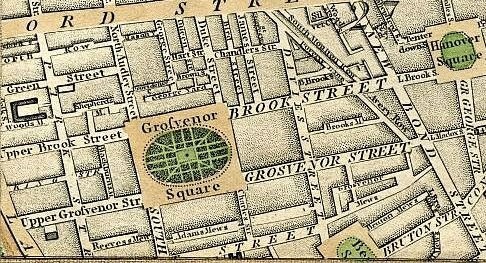
As Grosvenor Square was built during the Georgian era, setting it as the location of our heroes or heroines seems apropos. As the houses around the square were also rebuilt in the 20th century to look neo-Georgian, this too adds to its mystique as the setting for our leading characters. But last we have the fact that it truly was a square that the rich and influential lived around in period that lends itself to be home to our fictitious characters as well.
The square has long been one of the three or four most fashionable addresses in London, so obviously a place to plant one of or more of our Regency Lords or Ladies.
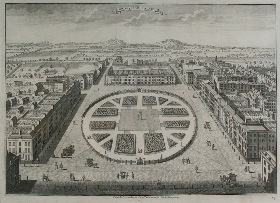
Sir Richard Grosvenor received a licence to develop the square in 1710 and began to do so by 1721. Houses along the square were built to five or seven bays width, and behind all the sides of the square were a mews.
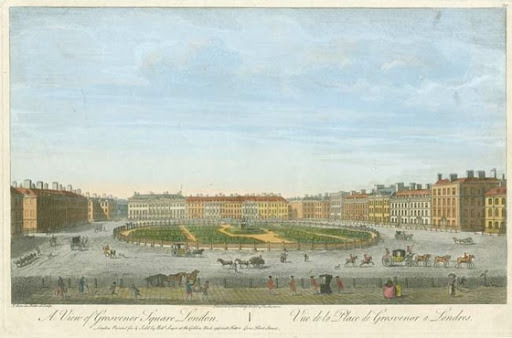
Notable residents of the square in the Regency era that I write in would be the 11th Earl of Derby at number 23. His daughter married Gentleman Johnny Burgoyne, the General who surrendered his army to Benedict Arnold and General Gates at Saratoga in 1777 and one of the many examples where we have 'For Want of a Nail.'
For want of a nail the shoe was lost.
For want of a shoe the horse was lost.
For want of a horse the rider was lost.
For want of a rider the message was lost.
For want of a message the battle was lost.
For want of a battle the kingdom was lost.
And all for the want of a horseshoe nail.
This was also the home to his son, the 12th Earl of Derby whose wife was an actress. (And after the war Gentleman Johnny of course indulged his own acting chops!)
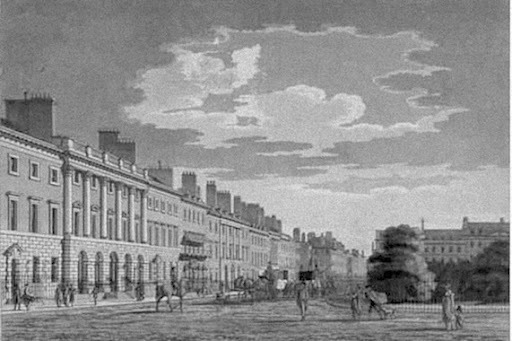
Another very famous inhabitant of the square in the era leading up to the Regency is John Adams, while he was the first american ambassador to England. It established a long practice of an american presence at the square.
Another inhabitant of the Square near the Regency era was Thomas Raikes, author of the "Journal." #29 was the home to the Earl of Harrowby.
Interview
Once again I was Interviewed, this time at J.A. Beard's Unnecessary Musings. I have been interviewed a few times these last months. I will provide here the post of that interview for your entertainment in the next blog. Though please click on the hyperlink and have a visit at JA's site.
Jane Austen and Ghosts
The Kindle version has been out since last week. It is also available now at Barnes and Noble for your Nook, or at Smashwords. The iTunes edition should be available in the next few days and the proof copy of the trade paperwork is on its way so it will be available physically in print as well in a short while
You can purchase your copy today at Amazon for $4.99. Or you can purchase at Smashwords, or at Barnes and Noble.
New this week is the availability on the iBookstore for your iPad, and in Trade Paperback. I uploaded all of that yesterday and though it may take a few days to become available, you will have access to this by the end of the weekend, I am sure. The Trade Paperback is now available for $8.99 US and of course available in other currencies for other countries based on that US price. Digital versions across all platforms are $4.99.
Click here to be taken to the webpage on Amazon
A brief synopsis of the story:
In the world of moviemaking, nothing is as golden as rebooting a classic tale that has made fortunes every time before when it has been adapted for the silver screen. Certainly any work by Jane Austen made into a movie will not only be bankable, but also considered a work of art.
That is of course until the current wave of adaptations that unite her classic stories with all the elements of the afterlife is attempted to be created. That these have found success in the marketplace amongst book lovers may not be quite understood by those who make movies. But that they are a success is understood and a reason to make them into movies.
All that being said, perhaps it would also be fair to say that the very proper Jane, were she present to have anything to say about it, would not be pleased. Of course she has been away from this Earth for nearly 200 hundred years. But does that mean were she upset enough, she wouldn't come back?
Ellis Abbot found stories for tinseltown to make into movies. His most recent find were the batch of stories set in the regency world of Jane Austen. Jane Austen and Monsters.
Meeting with the various authors of those works, it did not seem that Ellis could get one coherent plot of script out of any of them. At least not until he got help from the best source of all.








February 13, 2012
Jane Austen and Ghosts now for Nook and at Smashwords as well
That is the big news of the day
The Kindle version has been out since last week. It is also available now at Barnes and Noble for your Nook, or at Smashwords. The iTunes edition should be available in the next few days and the proof copy of the trade paperwork is on its way so it will be available physically in print as well in a short while
You can purchase your copy today at Amazon for $4.99. Or you can purchase at Smashwords, or at Barnes and Noble
Click here to be taken to the webpage
A brief synopsis of the story:
In the world of moviemaking, nothing is as golden as rebooting a classic tale that has made fortunes every time before when it has been adapted for the silver screen. Certainly any work by Jane Austen made into a movie will not only be bankable, but also considered a work of art.
That is of course until the current wave of adaptations that unite her classic stories with all the elements of the afterlife is attempted to be created. That these have found success in the marketplace amongst book lovers may not be quite understood by those who make movies. But that they are a success is understood and a reason to make them into movies.
All that being said, perhaps it would also be fair to say that the very proper Jane, were she present to have anything to say about it, would not be pleased. Of course she has been away from this Earth for nearly 200 hundred years. But does that mean were she upset enough, she wouldn't come back?
Ellis Abbot found stories for tinseltown to make into movies. His most recent find were the batch of stories set in the regency world of Jane Austen. Jane Austen and Monsters.
Meeting with the various authors of those works, it did not seem that Ellis could get one coherent plot of script out of any of them. At least not until he got help from the best source of all.








February 9, 2012
Jane Austen and Ghosts released today!
That is the big news of the day
The Kindle version is out today and it will be followed this week and next by iBooks, Barnes and Noble, Smashwords and trade paperback versions.
You can purchase your copy today at Amazon for $4.99.
Click here to be taken to the webpage
A brief synopsis of the story:
In the world of moviemaking, nothing is as golden as rebooting a classic tale that has made fortunes every time before when it has been adapted for the silver screen. Certainly any work by Jane Austen made into a movie will not only be bankable, but also considered a work of art.
That is of course until the current wave of adaptations that unite her classic stories with all the elements of the afterlife is attempted to be created. That these have found success in the marketplace amongst booklovers may not be quite understood by those who make movies. But that they are a success is understood and a reason to make them into movies.
All that being said, perhaps it would also be fair to say that the very proper Jane, were she present to have anything to say about it, would not be pleased. Of course she has been away from this Earth for nearly 200 hundred years. But does that mean were she upset enough, she wouldn't come back?








February 3, 2012
St James Square in the Regency
History
The location of the lord or ladies home in London is always something I spend time over. And each time I then research the square I use or re-research it. I have used St. James Square a few times as well as others.
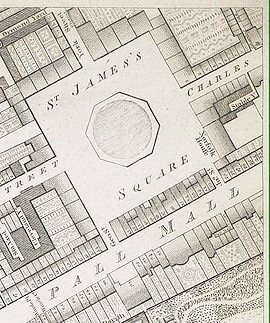
As St. James Square has a wealth of Georgian architecture, setting it as the location of our heroes or heroines seems apropos.
The square has long been one of the three or four most fashionable addresses in London, so obviously a place to plant one of or more of our Regency Lords or Ladies. The center of the square holds a statue of William III dating to 1808. The square was laid out by Henry Jermyn, 1st Earl of St Albans after the Earl had been given a lease on the lands until 1720 by Charles II in 1662. In 1665 the king granted the freehold of the site to the earl's trustees. The square was convenient located to the royal palaces of Whitehall and St. James. In the 1720's the square was home to seven dukes and seven earls, very poplar indeed.
One has to look close to notice the windows are more widely spaced on the square then other parts of the West End, that the ceilings are higher, the plots are deep and thus some homes had very large amounts of accommodation. Leading architects designed the interiors such as John Soane (1753-1837), Robert Adam (1728-1792) and Matthew Brettingham (1699-1769).
The southern side of the square was the less fashionable side with plots only sixty feet deep and 22 feet wide. Originally facing Pall Mall with Pall Mall numbers. Things changed in the 1830s, at the end of the Regency with the arrival of club-houses about the square.
In period residents were the Earls and Marquesses of Bristol #6. Chatham House, the home of William Pitt the Elder, #10. #19 is the home of the Dukes of Cleveland. Sir Watkin Williams-Wynn lived at #20. Norfolk house which is the London residence of the Dukes of Norfolk is #31. Samuel Pepys Cockerell and Charles Robert Cockerell built #32 between 1819-1821.
In the years after the Regency the square will become home to the London Library, the East India Club, the Army and Navy Club and even now the headquarters of BP.
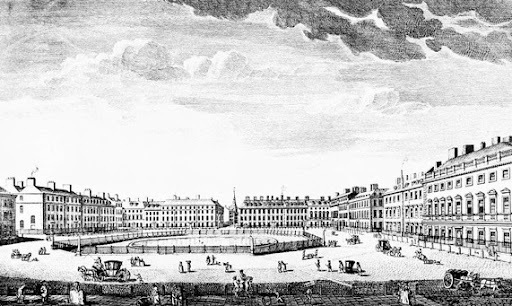
Interview/Giveaway
Once again I was Interviewed, this time at Laurie's Thoughts and Reviews I mentioned this in the last blog, so now I will provide here the post of that interview for your entertainment. Though please click on the hyperlink and have a visit at Laurie's site.
INTERVIEW
How did you start your writing career?
I've always liked stories. Hearing them, reading them, and then thinking about what happened next. That led to my own stories and the desire to write down the best ones so others could partake of them as well.
Who is your favorite author?
When writing a regency romance, then Georgette Heyer is my favorite author. But when not in the mode, for the sheer joy of the story, Charles Dickens is my favorite. I think he understood telling a story best and I like to think when I tell a story, others find I capture their interest as he captured mine.
Where do you research for your books?
I have an extensive library of books, over 1000 on history, culture, architecture. The needs that one as a genre writer uses. Now though we have wikipedia and google maps. Both of which are invaluable to me. When places some lords manor house, I can zoom down to great detail and see the lay of the land. It is much less expensive then flying to England and checking for myself, though should my books breakout, I'm on the next plane!
Does your significant other read your stuff?
When I was courting my SO, one of the things that united us was my writing her a romance. It was my first foray into Regency and we had met at a regency dance. As I crafted the story, she read it, but since, I have to twist her arm. It makes me wonder, especially since there is a question about it, if others have the same difficulties with their spouses.
Do you have critique partners or beta readers?
I do, but I am always looking for more. I think I produce more than they can handle. I took a critique class as part of getting a writing certificate from Cal State Fullerton some years ago. The group from that class continues to meet once a month for over a decade now. They are my first line of readers, and recently I have started a new writing group after relocating. Every writer needs more than their own pair of eyes on their work.
Do you listen to music while writing? If so what?
I have an extensive collection of music and over the last few years digitized everything onto the computer. I need the background of music to be my white noise to keep the distractions away. To allow me to concentrate. So I let it go onto shuffle play. It is one giant jukebox. Classical, opera, rock, pop, soundtracks. Can you imagine the expense before recorded music if i were to write with quill and ink? I would need a large orchestra, and many singers sitting outside my window serenading me. But then should they choose a selection I just did not want to hear, the fast forward button would be shouting, 'Next Song!' which would make one just a little guilty.
What book are you reading now?
I am reading Maggie Secara's Molly September. A piratical romance by a good friend. Before that, I just finished books 9 & 10 in Simon Scarrow's Macro and Cato series. The Gladiator and The Legion.
If you were to write a series of novels, what would it be about?
I am working on that. Two series actually. They are both fantasies. The first I started over 20 years ago (don't all of us who write in the genre have such a series in their drawer?) Both have political, economic overtures. The first was conceived as a trilogy with a coup d'etat, civil wars, and magic. The second is more the avenging hidden prince, but I threw a unique device of an imperial game contest (others have that device as well, I suppose.) In order to succeed our hero must win the contest, but also must have the entire empire ready to back him. At the beginning he is a boy, he may have the right to succeed, but he has not earned it. By the end of the series, after a long dangerous road, he will have earned the right. Here there is no magic other than very active pantheon of Gods who push and pull at their faithful to get things going the way they wish.
The Writing Life
Aside from maintaining communications with the web and internet this week, I worked on Space Short 2 and Jane Austen and Ghosts. Jane Austen and Ghosts should be released this week.
One of the last things to mention, is my book landing page, that I am using to direct traffic to showcase the works I have done. If you are interested, or would like to comment on it, please stop by at David's Page
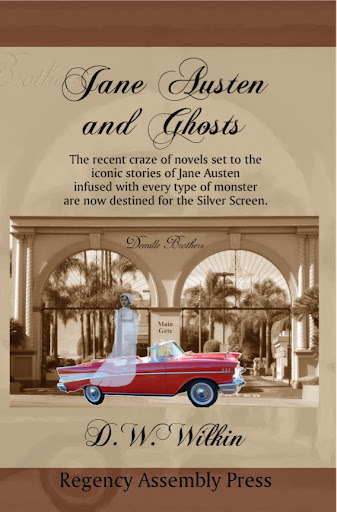








January 28, 2012
Russell Square in the Regency
History
The location of the lord or ladies home in London is always something I spend time over. And each time I then research the square I use or re-research it. I have used Russell Square a few times as well as others.
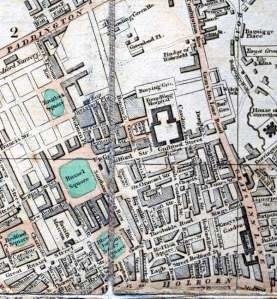
Russell Square is named after the surname of the Dukes of Bedford. The square is on the site of what were the gardens of what was the Duke's London house. The street lamps have the Duke's coat of arms on them. Developed in the very early 1800's by 1808 there seems to be available housing all around the square.
In 2002 the square was re-landscaped to the design of 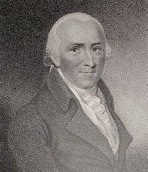 Humphry Repton, regarded as the successor to Capability Brown. Repton lived from 1752 to 1818 so he is one of our Regency Resources.
Humphry Repton, regarded as the successor to Capability Brown. Repton lived from 1752 to 1818 so he is one of our Regency Resources.
Russell Square was designed for Upper and Middle incomes. During the Regency it was home to 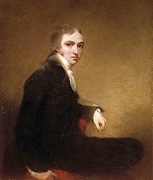 Thomas Lawrence's studio at #67 during the Regency (1805 to 1830). The Lord Chief Justice, Sir Charles Abbott lived on the square during the Regency. Also Sir Arthur Pigott #35, a Whig lawyer, Sir Samuel Romilly #21 who cut his own throat after his wife died. At #3 were the Booth's of Booth's Gin (That has some possibilities for a future story.)
Thomas Lawrence's studio at #67 during the Regency (1805 to 1830). The Lord Chief Justice, Sir Charles Abbott lived on the square during the Regency. Also Sir Arthur Pigott #35, a Whig lawyer, Sir Samuel Romilly #21 who cut his own throat after his wife died. At #3 were the Booth's of Booth's Gin (That has some possibilities for a future story.)
Interview/Giveaway
Once again I was interviewed for my work on Colonel Fitzwilliam's Correspondence.
It was at English Epochs 101 As promised, I am posting the interview here in two parts, but I encourage you all to take a look at Debbie's Page and the rest of her material. During the weekend of the 14th thru 16th of January 2012, she was the leading seller at Amazon of her work, The Companion of Lady Holmeshire 
An Interview with Author David W Wilkin (part 2)
When did you first begin to think about writing a novel, and what motivated your
decision?
As I mentioned, when I left college I got a job right away. But six months later, nepotism and diminishing revenue meant cuts. I was out. So then I turned my hand to a science fiction, a tongue in cheek western, a fantasy. All have potential, but they need another edit based on all that I have learned about the craft. When unemployment ran out, and I only had rejection slips to show for it, I went back into the workforce.
Did you study the Regency when you were at University?
Not at all. I studied a little on the English Victorian era. I had a class on the American Revolutionary era, but otherwise I focused on premodern asian history, and then european, before Napoleon. The Regency era did not hold any interest then. I was college age and a guy. The medieval and renaissance had a lot of battles that appealed to me and the many stories such as King Arthur (whose time period is before the medieval era of course, but all the movies come out with medieval armor and fighting) or Richard Coeur de Lion.
What do you think is the hardest part of writing?
The middle is often hard. To keep everything energized when the Boy is struggling to redeem himself for the Girl, or to capture her interest. I have it plotted but often by the time I get there, secondary plot lines are coming into play and what I had originally glimpsed as interesting when I first thought to write, is now eclipsed by other better ideas. Then the true hard part is editing. Somedays I would rather take a catnap while reading my own words. I of course pretty much remember what they say and where it is going. (Not that I think so highly of my work knowing that it does need editing. But somedays a nap seems very appealing.)
Do you find it easy to choose character and place names
I cheat. I look up in the long list of peerages names and change a thing or two to get them right. Then for place names, I look for an area I want to put the action at, and if it needs to be fictitious I think up something. Using @@@@ford, or @@@@ ton often works. There are a lot of fords and tons in England.
Please tell us about your books.
I'll just talk about the Regencies if that is alright. By far the most popular is Colonel Fitzwilliams Correspondence. It is a sequel to Jane Austen's Pride and Prejudice. Originally I envisioned that the Colonel would emerge and have a romance, but I quickly put Kitty into the scene. With Lydia gone, I found Kitty torn between wanting to be a better young lady, than she had been while her more boisterous sister led her about, but also still a person of fun. I knew that the growth that occurs in all of us over time could be telling for one such as Kitty moving from being a girl to a woman.
I also knew that the war lasts for years, and a woman, if not married before her lover goes to war, most likely would not wait and appear to be on the shelf. When I placed the first letter in the story as a device to appease and contain the ever flighty Mrs. Bennet, I had no realization that would become the device I could employ for the entire story, but the truth is that England was growing closer by virtue of the post. Look to the original and the post between Jane and Lizzy telling of Lydia's flight. Look at the missive Darcy places in the hands of Lizzy to explain himself. There is a great deal of letter writing occurring.
I believe that carries my book. That it is also the change in our hero, who becomes a great correspondent and uses his connections back in England to keep him sane amidst the battlefields of Portugal and Spain. The crux of both his growth, and that of his love interest occurs when he returns from the war. I attempt to place my own use of language, as did Heyer, into the story. I think this is a dividing point for my readers. Some have related that they find this works for them, while others expecting this book to be our current use of language can't get past that.
The last caveat of a work based upon another's writing is that many have their own ideas of what should be happening to the characters the original author created after writing The End. I of course take all those characters in the direction I chose. I used the last few paragraphs as a guideline, and I used Aldous Huxley's view of Pride and Prejudice's Catherine de Bourgh portrayed by Edna May Oliver for mine more than some of the others. Austen says that Lady Catherine and Elizabeth will make amends in the final paragraphs of the novel. The Olivier movie (1940) I think shows that clearly. (Edna May beats Judi Dench in this portrayal, hands down-IMO)
My other two Regencies are a little more of the typical pieces one finds with my twist. I try to emulate as best I can Georgette Heyer. So I don't write to a Harlequin formula but my own. In each I tried to evoke certain parts of the history that is occurring. In The End of the World the location is Cornwall. At this time the first railroad track was laid, without a train, to transport the copper from the mines to the ships that carted it to wales. My fictitious mine is the site where this is first adopted. Not that it plays a central point to the entire tale, but it is there as background. Something our hero brings to the story.
In The Shattered Mirror we have a story that evolves around the true end of the war. It ended twice of course, since Napoleon came back. And when it ends a second time, our heroine, who wants a hero, is going up to Town (London) for her first season. When in Town, she meets, runs into, a man she played with as a child. He, however, is now crippled from an injury sustained in the war. I think that is a side we forget about and I find that most of my heroes have some sort of PTSD. They have seen demons and have to confront them and come to terms with them. I think a great many other heroes in the genre are not beset by such problems. None I have read at least.
Another Interview/Giveaway
I have also been interviewed this week at Laurie's Thoughts and Reviews In the next blog I shall post that here.
The Writing Life
Aside from maintaining communications with the web and internet this week, I worked on my post for English Historical Fiction Authors. The work I shared with the group can be found on line and it is about the research I did for the The Fastest Love on Earth. See it here
Haven't written a great deal of pages this week. Have seen sales for the month reach 38 and of course hoping for more. My Books landing page if you are interested in checking it out and commenting on is at David's Books And feedback here is appreciated.








January 22, 2012
Berkeley Square in the Regency
History
The location of the lord or ladies home in London is always something I spend time over. And each time I then research the square I use or re-research it. I have used Berkeley Square a few times as well as others.
Laid out by architect William Kent in the mid 1700s, by the time of our Regency Society, it is perfect for all manner of inhabitants. Indeed, Sarah Child Villiers, Countess Jersey who is a patroness of Almacks lived on the square during our time period at #38. George Canning, the enemy of Castlereagh and Prime Minister of England in 1827, lived at #50. Robert Clive of India lived at #45 before the period and committed suicide in 1774 at his residence.
The square is named for the Gloucestershire family whose home was Berkeley Castle, and in London Berkeley House which had been located close to where the square was laid out.
Fictitious characters inhabiting the square, much better known then mine, include Flashie! and Bertie Wooster. It is also the site of the most infamous of all haunted houses in present day London. (The suicide of Robert Clive you might think, but really, it is at Canning's old residence of #50.)
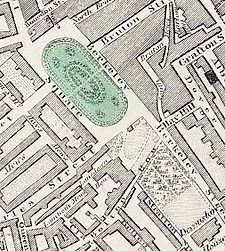
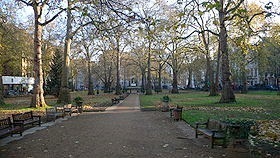
Interview/Giveaway
Once again I was interviewed for my work on Colonel Fitzwilliam's Correspondence.
It was at English Epochs 101 As promised, I am posting the interview here in two parts, but I encourage you all to take a look at Debbie's Page and the rest of her material. During the weekend of the 14th thru 16th of January 2012, she was the leading seller at Amazon of her work, The Companion of Lady Holmeshire 
An Interview with Author David W Wilkin
David Wilkin has been a historical re-enactor for twenty-five years. Most of that he has taught the dances of those past times to other re-enactors. With a degree in history and a passion for writing he has turned his hand to penning several novels about the past. A member of the English Historical Fiction Authors blog, today I interview him to tell us a little bit more about his work and the time periods he specializes in.
Where did you grow up, and where do you live now?
I am a Los Angeleno. Born in Los Angeles California. Went for two years of college at UC Santa Cruz before coming back to town and finishing at UCLA. I have spent the rest of my life here in Southern California.
You majored in History. How do you use that in your daily life?
In my daily life I have been a manufacturing executive for 20 years. History comes into play only when I relate stories to the workers about how we did it in the old day. Or an idea on how to counsel the employees. Citing how other companies in the world (I am an avid reader of business history) have overcome an obstacle and gone on to success. Talking about a Regency Dandy like Beau Brummels, or about Prinny, does me little good on the shop floor.
How did your interest in writing begin?
I liked creating stories when I was a child. Then in college I actually submitted an article and it was published. When I graduated, after my first out of college job ended, I tried my hand at writing stories. I find in comparison to what I create now, there was a lot more editing at the end of my drafts when I started then now.
How long have you been writing now?
Over thirty years. But the last ten have been the most fruitful period. And of that, two and half years ago we had to close my own company, Aspen Interiors. We made the woodwork found in the Cheesecake Factory restaurants. That was a blow, and so I turned to writing every day after sending out the resumes. I have written 9915 pages in the time between closing Aspen and reentering the work force. Lots of first draft material, some second draft, and some items actually now in print.
Where did your interest in the Regency Era come from?
That is a tale, and bear with me, I shall lead you to the end of the trail. I liked history enough from High School to make it my major in college. I specialized in Pre-Modern Asian history while getting my degree which is pretty far from the study of Regency England. But History, I have always found, is stories. I like stories and even before college I wrote some, but after, I started my quest to be a novelist. I also became an Historical Re-enactor.
I joined groups where we made the costumes of the era we were Re-enacting. I learned the dances from those times, and then actually taught well over 1000 people how to do them. Running regular dance practices. My early main focus was Medieval and Renaissance, but one day a friend said, 'Have I got a girl for you to meet,' and dragged me to a Regency Dance. Well, not that girl, but several years later, I met my wife, Cheryl at a Regency Ball.
To woo her (she was very far away), I wrote her a regency romance, a few pages a day, that turned into a novel. When taking a class to further enhance my writing, I resurrected the story and worked on it more. Then over the last ten years, found that a good third of my output was Regency Romances.
I'll have the rest in the next blog post.
Writing Life
As for our progress this month so far. I have slowly gotten into the habit of writing a page when I get home after 11 hour days at the factory. So there has not been a lot of work on the second Science Fiction Novella. Our hero, Peter Jennings is sitting in a lounge as the Secessionist representatives are finally withdrawing from Unity Space. I feel a bar fight coming on.
I have sold a book a day which is good news. Walking around money. Decided to buy the Rod Stewart American Songbooks I didn't have last night. Found that my iPad view of Rod Stewarts work did not show I had the fourth album so I got it. When I came to iTunes on the iMac though. It was there in the list. Now I have two versions.









